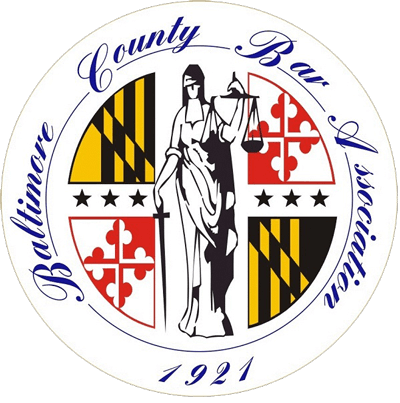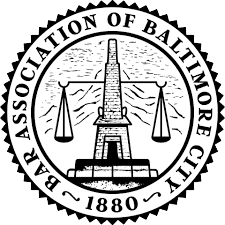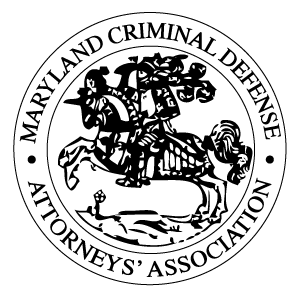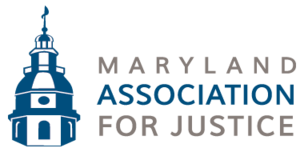Personal Injury Practice Areas

Personal Injury Law
A person who has been injured because of somebody else’s carelessness has the right to just and reasonable compensation. It may be as a result of an auto collision or an injury that occurs on somebody else’s property, but in either case where an injury has happened there are going to be ongoing effects from the injury. What reasonable compensation aims to do under our law is to put the person back in the same circumstance as they were before the accident – in other words to make the person “whole” again. Under our system of law, that means compensating a person for the losses that they have suffered.
Types of losses compensable in a personal injury setting:
What is human suffering worth? There is not a straightforward answer. It will depend on the degree of the injury, whether it’s temporary or permanent, whether it interferes with the day-to-day activities of one’s life, and whether it diminishes the quality of the person’s life. One thing you can bet on is that insurance companies and/or the attorneys defending a careless person will take the position that it’s not very much, but you must understand that that position is part of their ongoing effort of trying to pay as little on a claim as possible.
In some cases, an injury will be serious enough whereby a person will have to miss time from work. This is a decision that is usually made by the treating physician. As a result, a person who misses time from work as a result of an injury is entitled to recover their loss of wages. In a case of a severe injury, a person may lose the ability to perform the job that they once did or may not be able to work at all. In those cases, a person must be evaluated to determine whether they can return to work or whether there is any type of work that they could possibly do. If the loss of a person’s vocation results in a diminishment of earning capacity, then they are entitled to recover that against the careless person as well.
Medical treatment means medical bills, and if that treatment arises from the conduct of someone who’s been careless, then the careless person is responsible for those medical bills as well. This includes any type of future medical treatment that may be required as a result of the person’s injury.
In those unfortunate cases where a death has occurred, there are various damages that are available to both the estate of the deceased as well as certain family members. An estate of a person who has died as a result of an accident has many of the same rights of recovery as if the person survived, such as the right of recovery for pain-and-suffering, the right of recovery for loss of wage or vocation, and the right of recovery for medical bills. In addition, the immediate relatives of the deceased may also be entitled to recovery for the emotional loss that they have suffered.
If a person has health insurance at the time of the accident and the health insurance company pays the medical bills arising from the accident, then there is usually an obligation that the injured person reimburse the health insurance company, at least in part, if the injured person obtains a monetary recovery. This monetary recovery can be in the form of a settlement or a verdict. This is an obligation that arises from the health insurance contract, and if the injured party fails to reimburse the health insurance company, the company may either file a lawsuit to recover the bills that it paid or deprive the person of future medical benefits.

Automobile Accidents
So You’ve Been Involved In a Vehicle Accident…
Assuming that the accident did not involve a catastrophic collision, and that the drivers involved in the accident are able to safely exit their vehicles, then there are some basic “do’s” and “don’ts.”
Unless you feel that your personal safety is at risk, you should exit your vehicle and exchange information with the other driver. If the person refuses to provide identifying information, such as a license and insurance card, then consider calling the police and/or taking a photograph of their license plate.
“Don’t” engage in an argument with the other driver. If there are witnesses, ask them if they saw the accident and would they be willing to provide their name and phone number.
It is generally a good idea to call the police to the scene even if the collision was not disabling to the vehicles because the police can ensure a safe and smooth exchange of information.
If any of the vehicles involved in the collision have been disabled, then the police need to be called to the scene.
If a person has suffered a disabling injury, then an ambulance and police should be called to the scene.
Cooperate with the officer investigating the accident. If someone is injured, or at least one of the vehicles has to be towed from the scene, the investigating officer will write a report. It is important that you tell the officer what happened, and do not try to argue through him/her with the other driver. Investigating officers will generally report what the drivers tell them, even if the stories conflict.
If you are having pain, then you should call 911, and police and ambulance will arrive. Let the ambulance personnel do their job and follow their recommendation as to whether you should be taken to the hospital. The investigating officer can take care of securing your car.
Many times, a person will not realize the nature and extent of their injury or even that they are injured at the scene. Often times, it is only after people have settled down that the pain begins.
Take your pain seriously, and seek immediate medical treatment if your pain gets worse or persists.
Even if you believe that the other driver was clearly at fault, you should report the accident to your own insurance company. People will change their stories once they leave the scene and you have an obligation under your insurance policy with your insurance company to report any situation that may involve a claim being pursued. In addition, if the other driver does not report the accident to their insurance company, they could possibly violate their policy and that insurance company could cancel the policy of insurance.
You may get a call from the insurance company for the other driver. First, you have no obligation to speak to them. The only obligation you have is to speak to your own insurance company. Second, the person calling you from the other driver’s insurance company will want to take a statement from you, and part of the motivation behind taking a statement is to get you to say something that may harm your case, whether it be something about how the accident happened or to minimize the injury that you suffered. Also, you may be asked to give a recorded statement, which means that if you say something that harms your case, they will have a record of it.
It is generally not a good idea to speak to the other driver’s insurance company before you have consulted with an attorney.
Uninsured Motorist / Underinsured Motorist Claim
As long as you have insurance on your vehicle, the answer is no. Every automobile policy issued in the state of Maryland is required to have what is known as uninsured motorist/underinsured motorist coverage and what this means is that if the other driver cannot be identified or has no insurance, then your insurance company will step into the shoes of the other driver and pay for the damages and losses that you have suffered.
But won’t this raise my insurance rates? The simple answer is: it should not. Many people are hesitant to bring this type of claim because they believe that their insurance company will raise their rate, however, insurance companies are not suppose to raise rates unless the accident was your fault. Furthermore, uninsured motorist/underinsured motorist coverage is a form of protection for which you pay a premium—not taking advantage of this coverage not only means that you may be cheating yourself out of fair compensation, but in essence you’re paying premiums for a service you’re not taking advantage of.
No. You need to understand that liability coverage comes into play when you cause an accident and another driver suffers damages and losses. Liability coverage is to pay for the damages suffered by the other driver. On the other hand, when the other driver does not have insurance, uninsured motorist/underinsured motorist coverage will pay the damages that you suffered. Lowering your uninsured motorist/underinsured motorist coverage to an amount less than liability coverage means that you are protecting somebody else more than you are protecting yourself.
If you suffer an injury from a driver who either has no insurance or cannot be identified, then that driver is considered to have no insurance at all to pay for your losses.
Underinsured motorist coverage means that the other driver does not have enough insurance to adequately compensate you for your losses. An example would be if a driver who hits you has $30,000 in coverage, and your medical bill is $40,000, then there is a $10,000 deficit. Who covers it? Well if your policy exceeds that of the driver who hit you—say you have a $50,000 policy—then your insurance would step in and pay the additional $10,000.
The biggest difference between filing a claim against another driver who has insurance and making a claim for uninsured motorist/underinsured motorist under your own policy is that you must cooperate with your own insurance company in ways that are different from dealing with somebody else’s insurance company.
Cooperation usually means giving a statement to your insurance company soon after the accident occurred.
Cooperation may also include your insurance company questioning you under oath about how the accident happened or the nature and extent of your injuries.
Cooperation may also include you providing access to your medical records.
As with any other accident, having an attorney who is experienced with dealing with uninsured motorist/underinsured motorist claims to guide you through the process is generally a good idea.
Free Consultation
If you’ve been injured, then feel free to contact me. My consultations are free, and I can assist you with protecting your rights. My fee is based on a contingency, meaning that I do not receive a fee unless I either obtain a settlement or verdict in your favor.
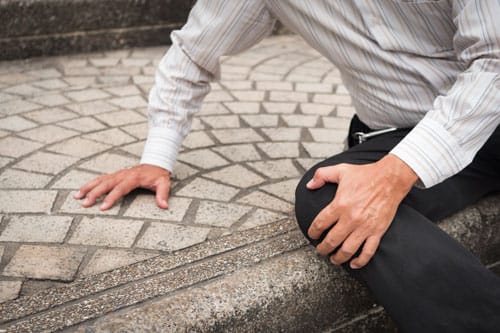
Premises Liability and
Slip & Fall
An injury that occurs while a person is occupying another’s premises or property is commonly referred to as “premises liability,” and it can be anything from a person slipping and falling to a person who gets hit by some object. There are some issues that arise in these types of cases.
First, in order to hold somebody responsible for an injury that occurs on a property, it must be shown that the person or company that either owns the property or was in charge of managing it knew or had reason to know that there was a condition that posed a hazard to people on the property. It’s not enough that somebody is simply injured on property. A claimant must be able to show that the condition existed prior to the accident, and that the person or company that could have acted to remove the condition knew or had reason to know of the existence of that condition before the injury occurred.
For example, if a person slips and falls because there is water on the floor, it is not enough to show that the water was on the floor at the time of the fall, it must also be shown that the person or company that was in charge of the floor or on the floor knew about the water before the slip and fall and took no steps to clean it up.
Second, a defense that is often times used in such a case is that the person claiming the injury should have been aware of the condition had they been paying attention.
For example, if there is a caution sign or other sign that informs about a dangerous condition, such as a slippery substance, and a person still slips and falls, that person will not likely be successful in the claim.
Third, often times if an injury occurs on a commercial premises, then there may be a form of no-fault insurance known as med pay available to pay medical bills. This type of insurance will usually only cover medical bills and it must be shown that the person was on the premises and suffered an injury, regardless of whose fault it may have been.
Fourth, in a typical situation where a person suffers an injury on a premises, a manager or assistant manager will come to the person’s aid, determine if there is any needed medical assistance, and then either have the person complete an accident report or the manager or assistant manager will do so.
And finally, premises liability cases tend to be problematic because of the various issues which I have briefly outlined here, but the best piece of information I can give is to consult with an attorney about this type of case.
I have tried or settled hundreds of premises liability cases, and I would be happy to talk to you about your case.


